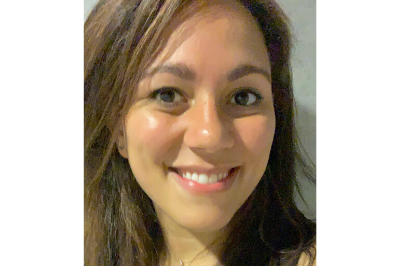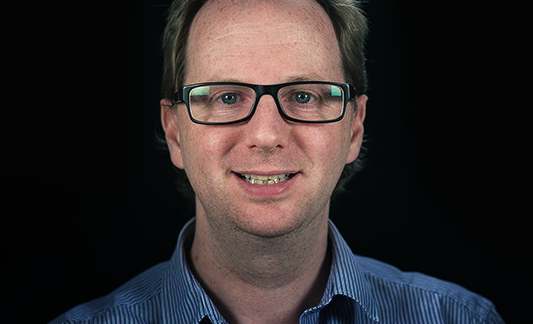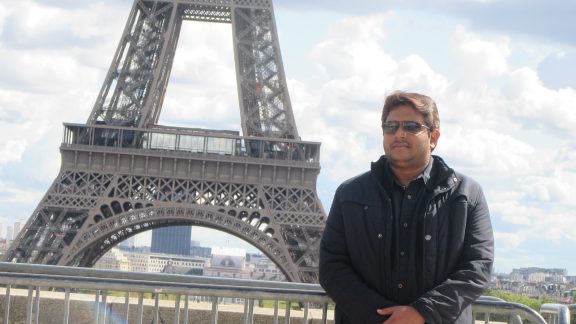Frank Escaros-Buechsel, Staff Consulting Architect, has made significant contributions to VMware’s Certification Program and specifically for recent work done on NV certifications and Deploy exam support. He is one of those people that let his passion for excellence drive him to go above and beyond.
Frank has contributed as a subject matter expert during multiple competency modeling, item development, technical review, and standard setting workshops, as well as assisted with ongoing maintenance of VMware’s performance based testing environments. Frank’s knowledge and expertise of VMware products and technologies has helped the certification community in more ways than can be mentioned. Thank you Frank for your contributions and assistance in making VMware’s certification program best in class!
 What’s your background and how did you get started in IT?
What’s your background and how did you get started in IT?
At first, I unsuccessfully tried to study physics then switched to media technology with about the same success factor. I therefore pursued an apprenticeship with 2 days a week of school and the rest of the time of on-the-job training; it was a mix of IT and business.
My wife and I decided to move out of Germany. We both started at Apple then I was headhunted by VMware and quit Apple to join VMware after only 3 months. I joined VMware in 2012 as a Technical Support Engineer in the German language team from where I moved on as an Escalation Engineer into the Cloud Management support team. I had a one-year stint with SimpliVity in 2016 but came back to VMware. In 2017 I was involved in an escalation role in our Premier Telco Support team. Today, I am a Staff Consulting Architect in the VMware Professional Services Organization’s Telco team.
How did you get started with earning certifications?
I started with earning a Microsoft certification and the CCNA. My favorite certification vendor has been VMware. In the beginning, I got certifications as they were relevant to roles that I had. Then I became addicted to take tests – to challenge myself and branch out my knowledge to areas my day to day job didn’t cover. I took the Cloud certification while still in the German language support team. Earning the certification helped me to move into more cloud focused role in cloud support team.
I was one of the first people in the GSS support center to earn a VCAP. Back then it was considered the holy grail and very hard. I studied and realized it was not that difficult! The majority of preparation is exam taking skills. You still need the technical knowledge, but the administrative Deploy exams are not that hard. It doesn’t test obscure configurations. No weird command line that you don’t use on every day basis. The DCV Deploy exam focuses on basic admin tasks in an enterprise environment. If you have been an admin for a year, you should be able to pass the test without too much study.
How did you get involved with building certification exams?
I started to get involved with exam SME stuff in 2013 with VCP Cloud. Shortly after taking that exam, I got involved with the certification team. I started working on the blueprint for the next version of VCP Cloud/CMA. Later, I got in touch with the certification contact and was helping with the technical side for the lab development labs and got more and more involved as a SME. It’s certainly more of a time commitment than just sitting the exam.
How do you prefer to prepare for an exam?
For an experienced IT professional, you can actually use transfer of knowledge to prepare. You don’t have to study for different product versions; more or less read the “what’s new” technical white papers and go into the lab environment to test. If you’re net new getting into the game, it is harder. Keeping up to date is much easier than starting from scratch, although it does depend on the technology stack. NSX-V to NSX-T, for example, obviously was a much harder effort because of changes rather than several releases for DCV, and underlying fundamentals have very little difference in what you learn. Touching technology day to day makes the study effort easier.
Personally, I prefer to have a good mix of theory and praxis. For new technology I tend to study the install and admin guide followed by some Hands-on Lab or similar lab environments to reinforce the concepts. I always map out chapters of the admin guide to the exam blueprints as this is where the questions are created from – for any exam. I start to think like an exam creator at this stage (and being a SME on the VMware exams has helped a lot in this process), how would I make a candidate work through a particular section or what kind of questions can I think of to test the correct configuration procedures or requirements and limitations. You will find that this is extremely helpful, especially for performance-based exams like the Deploy exams of VMware, as the general allotted time frame per question is only a couple of minutes the amount of what can actually be tested boils usually down to very few tasks which you can then easily study.
What makes for a good online learning experience?
I think it’s a very personal experience for how to best learn. I don’t enjoy ‘vomit data’ learning types. Some video courses are good because you can squeeze it in at short time. If you can’t speed up the video playback, I won’t watch it! Most education speakers speak slowly and annoys the heck out of me! I’m a huge fan of performance-based exams. Even for Microsoft and Cisco, you have to go into virtual interface. I’m also a huge fan of Deploy exams because they test practical knowledge and don’t test multiple choice. It’s nice to know but you can Google the answer. I much prefer performance-based exams.
How can we use Hands on Lab (HOL) environments for maintaining education?
To keep up with technology, internal VMware clouds (while great for me as an employee) are not an option for most candidates. HOL always works and while they are not dedicated exam test and preparation environments, they certainly contain most configurations that you will be tested on in the VMware exams, so they are a great tool to study. This is especially helpful if you are on a budget, and getting your own home lab is simply out of reach.
Part of their role is to support presales; they make up for a great demo environment. Most learning transcripts in HOL are very focused on use cases rather than feature driven scenarios.
What benefits do you get by being an exam SME?
I get to influence the quality of questions and answers. Multiple choice tests especially have a tendency to become memory tests. Rather than complaining, I am actively ensuring that it doesn’t happen.
Overall, the experience is fun. I get to learn different points of view across SMEs covering a broad amount of roles and customer sets. Even from consultancy, I deal with Telco but others in automotive or enterprise, how you approach things are completely different. It’s a very good learning experience.
What do you see as the future of certification?
I am a huge fan of performance-based exam. I would like to see Design exams to move back in that direction. I don’t like drag and drop questions. If there was correct tooling to score multiple correct answer, it could be amazing for a Design exam. Having small hands-on parts on the VCP exams would also be valuable.
Fun facts
I cycle more kilometers per year than I drive in a car. Ireland has narrow roads and can be challenging. I have traveled to Germany and Italy for international cycling events. And I get around and travel for cycling for fun!
Learn more about VMware’s Education Contributor Program.
Connect with Frank on Twitter




